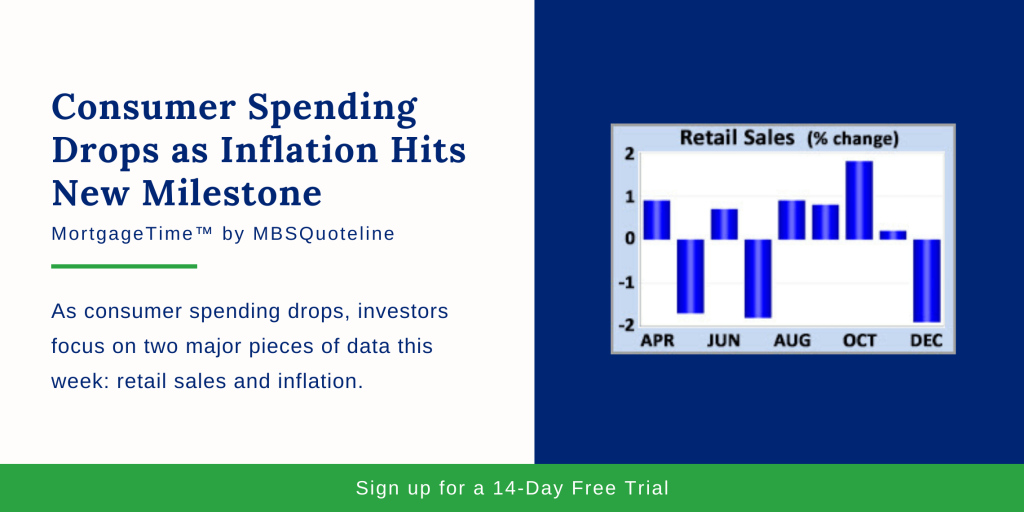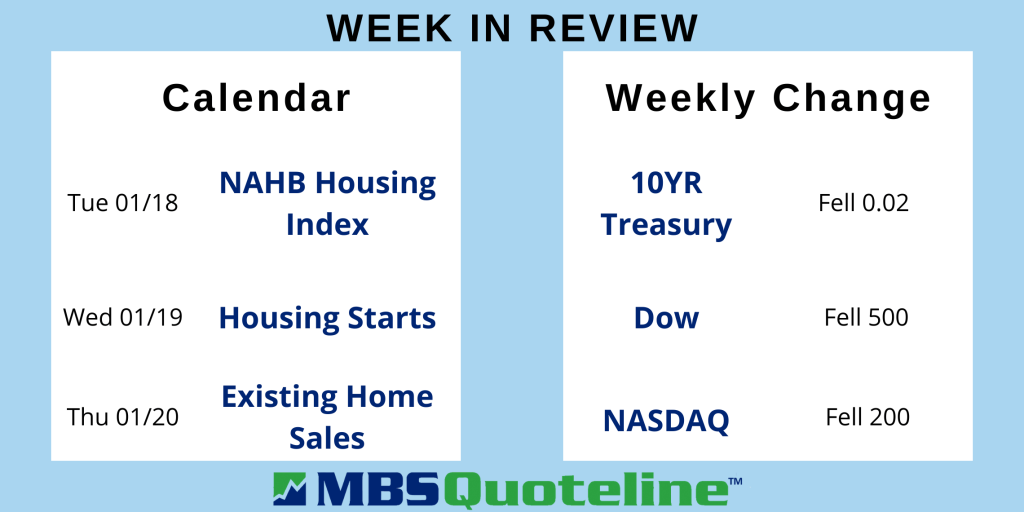As consumer spending drops, investors focus on two major pieces of data: retail sales and inflation. Retail sales came in weaker than expected. Conversely, CPI inflation exceeded expectations. However, neither report caused much reaction in mortgage markets. Thus, mortgage rates ended the week with little change.
Consumer Spending Drops to Cap Off Holiday Season
Consumer spending accounts for over two-thirds of US economic activity. Therefore, consumer spending represents an important indicator of the health of the economy. In December 2021, retail sales plunged 1.9% from November. As consumer spending drops, it fell far below the consensus forecast for just a slight decline of 0.1%. Despite this recent weakness, sales rose an impressive 17% in 2021, recovering nicely from a tough 2020.
Several factors contributed to the drop in consumer spending at the end of 2021. First, due to shortages of a wide range of products, consumers started doing their shopping sooner than usual. Due to this, earlier holiday season resulted in much stronger than expected spending. In addition, rising COVID-19 case counts and surging prices caused people to scale back their purchases in December.
Annual Inflation Rate Reaches Highest Level Since 1991
As consumer spending drops, inflation hit a new milestone. Investors closely watch the Consumer Price Index (CPI) for price changes regarding a broad range of goods and services. Core CPI excludes the volatile food and energy components and provides a clearer picture of the longer-term trend. In December 2021, Core CPI rose 5.5% higher than a year ago. Not only did Core CPI increase from an annual rate of increase of 4.9% last month, it achieved its highest level since 1991.
Many factors contribute to the jump in the annual core inflation rate, including a tight labor market, strong consumer demand for goods, rising energy prices, and supply chain disruptions. Global transportation delays and component shortages for many items sparked enormous cost increases. Investors conflict on whether the inflation reflects temporary or long-term changes.
Looking Ahead After Consumer Spending Drops
As consumer spending drops, investors closely follow news on the Omicron variant. Also, investors for additional Fed guidance on the timing for future rate hikes and balance sheet reduction.
Mortgage markets close on Monday in observance of Martin Luther King Day. Beyond that, next week focuses on housing sector data. Housing Starts release Wednesday, while Existing Home Sales comes out on Thursday.
While this week saw mortgage-backed securities fluctuate as consumer spending drops? Never miss an update with MBSQuoteline. To receive by-the-minute updates on mortgage-backed securities, try our platform free for 14 days.
Stay connected with MBSQuoteline on social media by following us on Facebook, Twitter, and LinkedIn.
All material Copyright © Ress No. 1, LTD (DBA MBSQuoteline) and may not be reproduced without permission. To learn more about the MortgageTime™ newsletter, please contact MBSQuoteline at 800.627.1077 or info@mbsquoteline.com.



